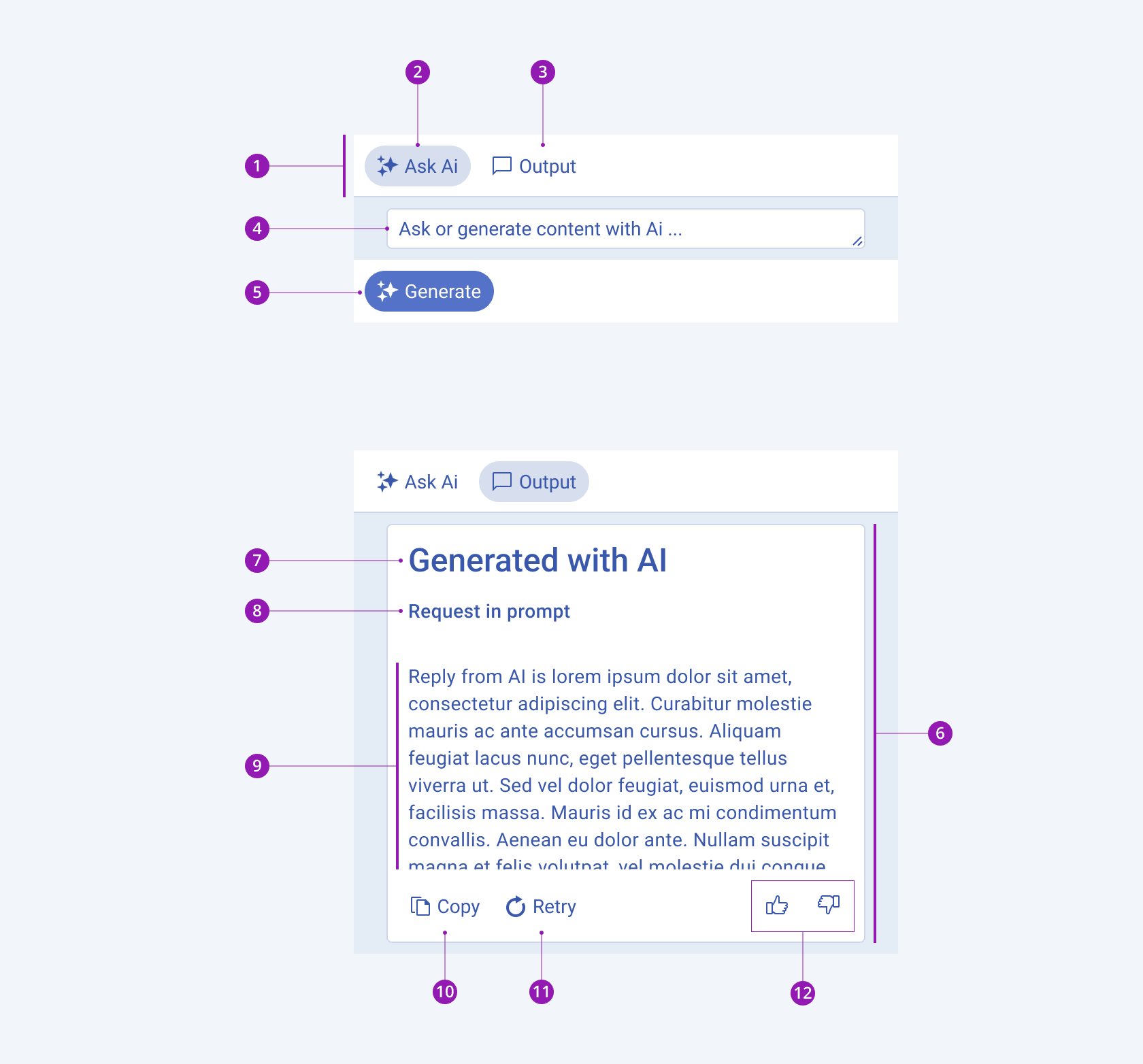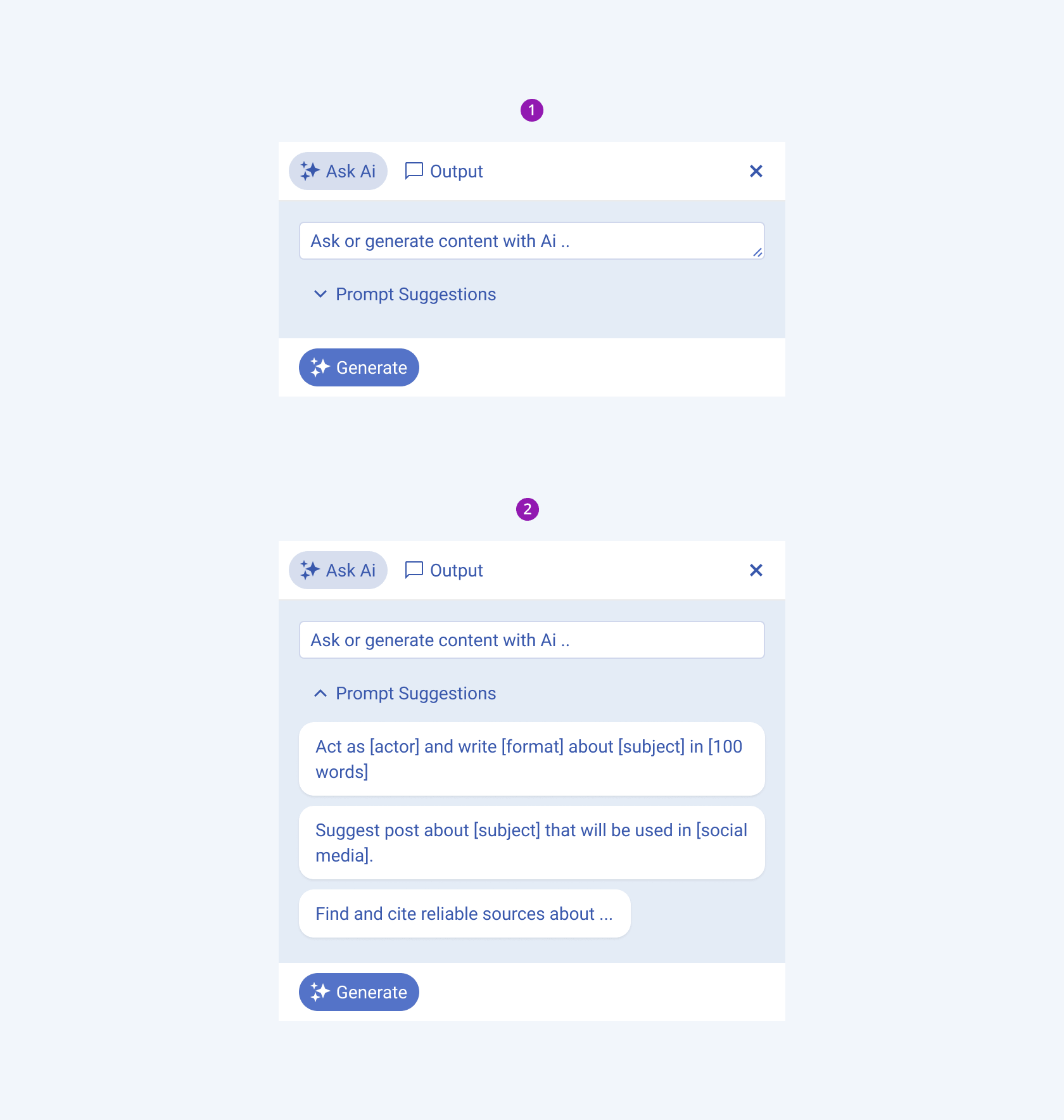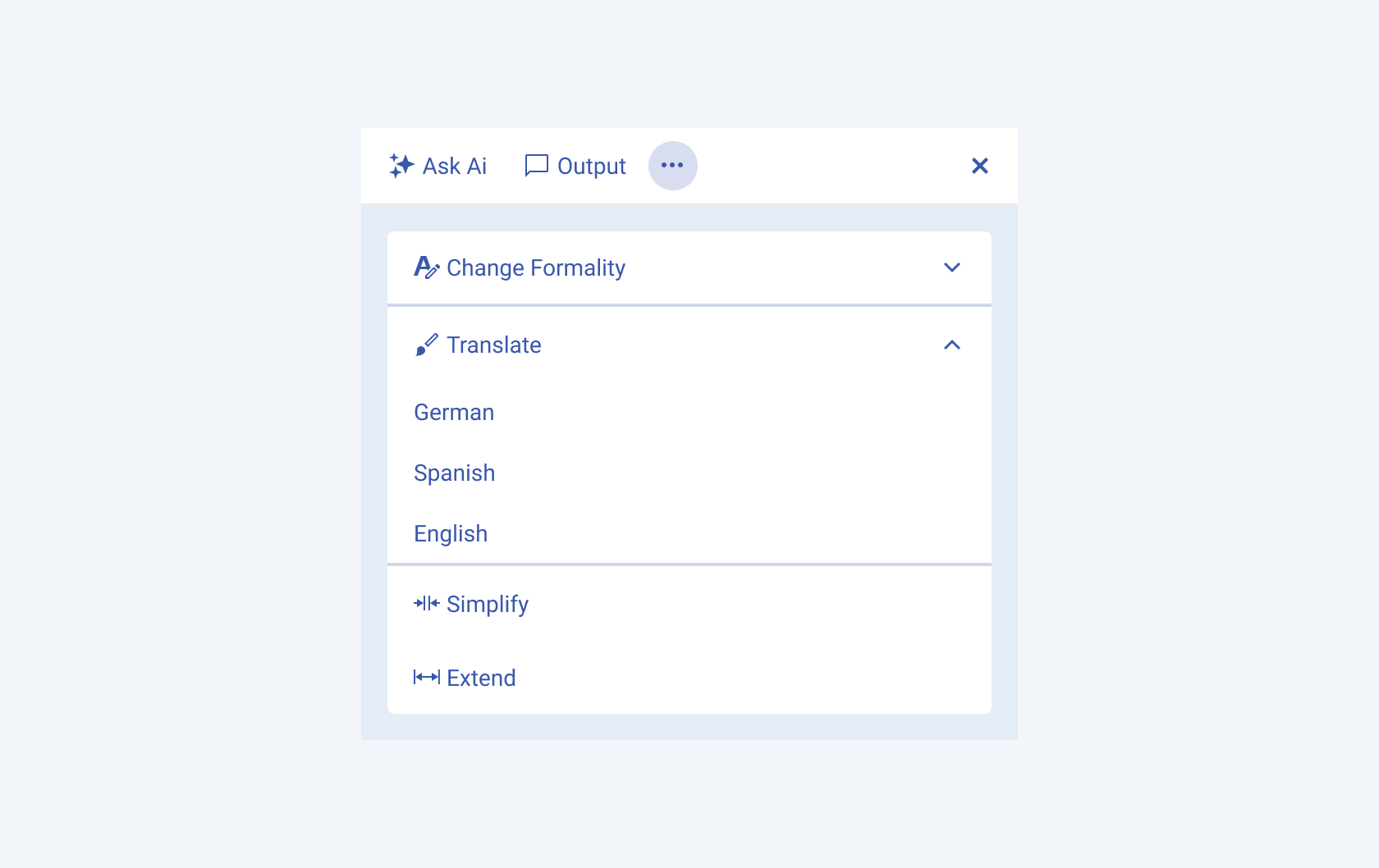AIPrompt Overview
The Telerik and Kendo UI AIPrompt enables the users of your application to interact with a trained language model of your choice. It comprises an input field, a customizable menu with pre-defined commands, and user-selectable options for query management.
Live Demo
Appearance
The configuration of the AIPrompt component revolves around the concept of Views. Each View includes elements that are specific to the current stage of the user's interaction with the AI model:
- Prompt View—Serves as a key area for the user input and includes a main input field for entering prompts, a list of suggestions, and a button to submit requests to the large language model (LLM).
- Output View—Visualizes all previous interactions by showing prompts (or commands) and their results and provides options to retry, copy, or rate each response.
- Command View—Lists custom commands that can be used in your specific context or as independent queries to the LLM.
- Custom View—Enables you to customize the view content entirely.
Anatomy
The anatomy of the AIPrompt summarizes the elements of the component:

- Toolbar
- Prompt view
- Output view
- Prompt text area
- Generate button
- Response card
- Request command
- Request content
- Response content
- Copy button
- Retry button
- Vote buttons
Prompt Suggestions
The AIPrompt lets the user interact with the AI model in two ways—by typing their instructions and requests in the dedicated input field and by selecting from a list of predefined prompt suggestions.

- Collapsed view
- Expanded view
Command View
The Telerik and Kendo UI AIPrompt component lets you define custom prompt commands that users can select and apply.

Framework-Specific Documentation
For specific information about the component, refer to its official product documentation:




